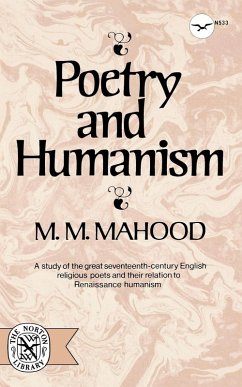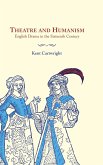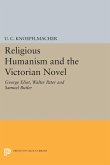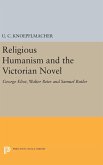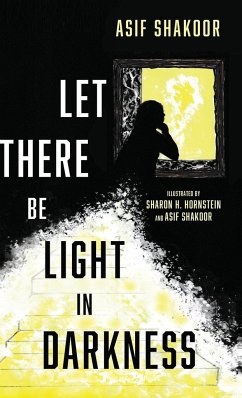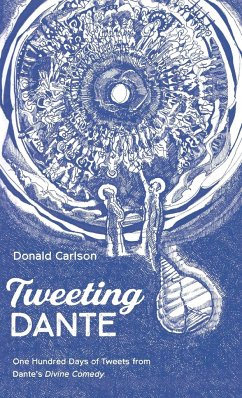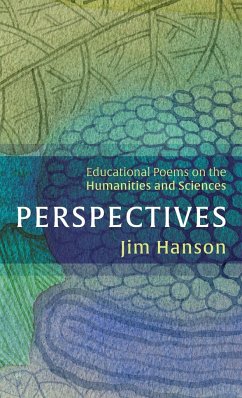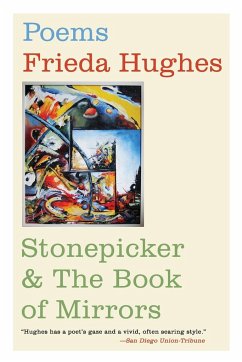In 'Poetry and Humanism, M. M.' Mahood writes on the great religious poets of seventeenth-century England and their relation to Renaissance humanism. The seventeenth-century poets are almost without exception men of the world: their poetry is full of sensuous, scientific, and mundane images. But they are also religious men, fully aware of man's paradoxical situation between Heaven and earth. What these poets accomplish, Professor Mahood shows here, is a reintegration of the strands of humanism, a conscious re-orientation that restores the balance between God, man, and nature.
The seventeenth-century poets are almost without exception men of the world: their poetry is full of sensuous, scientific, and mundane images. But they are also religious men, fully aware of man's paradoxical situation between Heaven and earth. What these poets accomplish, Professor Mahood shows here, is a reintegration of the strands of humanism, a conscious re-orientation that restores the balance between God, man, and nature. In interlocking chapters, the author discusses Herbert's poetry, Donne's poems and sermons, Milton's epics, Marlowe's tragic heroes, and Vaughan's "symphony of nature." She shows how each of these writers struggled in his own way with the question of freedom and the concept of the hero, dealing with the growing tensions between eternity and time, spirit and sense. Through a close reading of their ideas and imagery, she explores their unique achievement: the synthesis of the medieval world-view and the discoveries of the Renaissance. Poetry and Humanism is a book, the Times Literary Supplement says, that is "always stimulating and often wise, and makes valuable comment not only on the thought of the seventeenth century but on that of our own."
Hinweis: Dieser Artikel kann nur an eine deutsche Lieferadresse ausgeliefert werden.
The seventeenth-century poets are almost without exception men of the world: their poetry is full of sensuous, scientific, and mundane images. But they are also religious men, fully aware of man's paradoxical situation between Heaven and earth. What these poets accomplish, Professor Mahood shows here, is a reintegration of the strands of humanism, a conscious re-orientation that restores the balance between God, man, and nature. In interlocking chapters, the author discusses Herbert's poetry, Donne's poems and sermons, Milton's epics, Marlowe's tragic heroes, and Vaughan's "symphony of nature." She shows how each of these writers struggled in his own way with the question of freedom and the concept of the hero, dealing with the growing tensions between eternity and time, spirit and sense. Through a close reading of their ideas and imagery, she explores their unique achievement: the synthesis of the medieval world-view and the discoveries of the Renaissance. Poetry and Humanism is a book, the Times Literary Supplement says, that is "always stimulating and often wise, and makes valuable comment not only on the thought of the seventeenth century but on that of our own."
Hinweis: Dieser Artikel kann nur an eine deutsche Lieferadresse ausgeliefert werden.

